Is Fermented Food Good for Dogs? Here is Everything You Need to Know
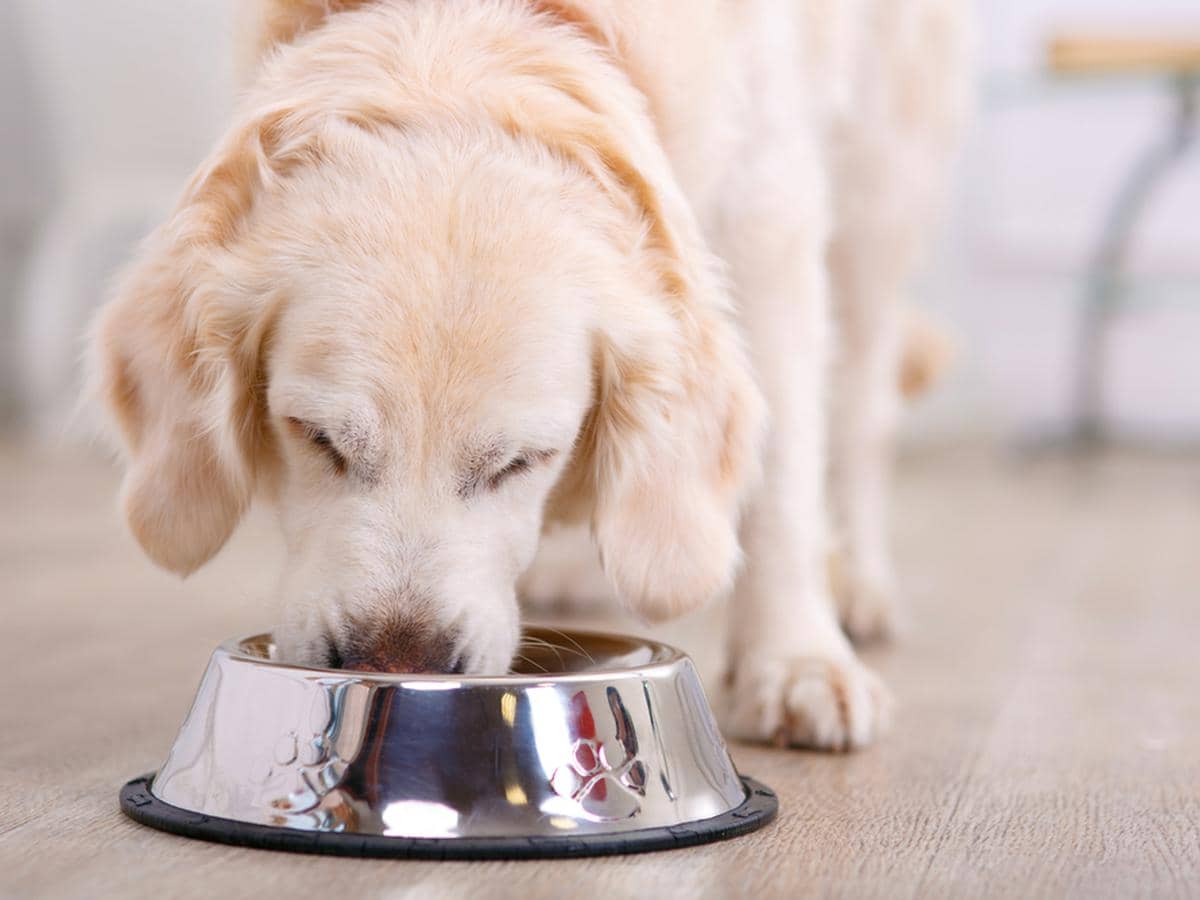
Can dogs eat fermented foods? They sure can! But fermented foods need to be introduced gradually to your dog’s meals.
You can start off with a spoonful today, two spoonfuls tomorrow, and so on, allowing your pet’s tummy to get used to the new food, before giving it a full fermented meal.
In this article, we give you the run-down on what fermented food is, as well as the pros and cons of adding it to your dog’s diet.
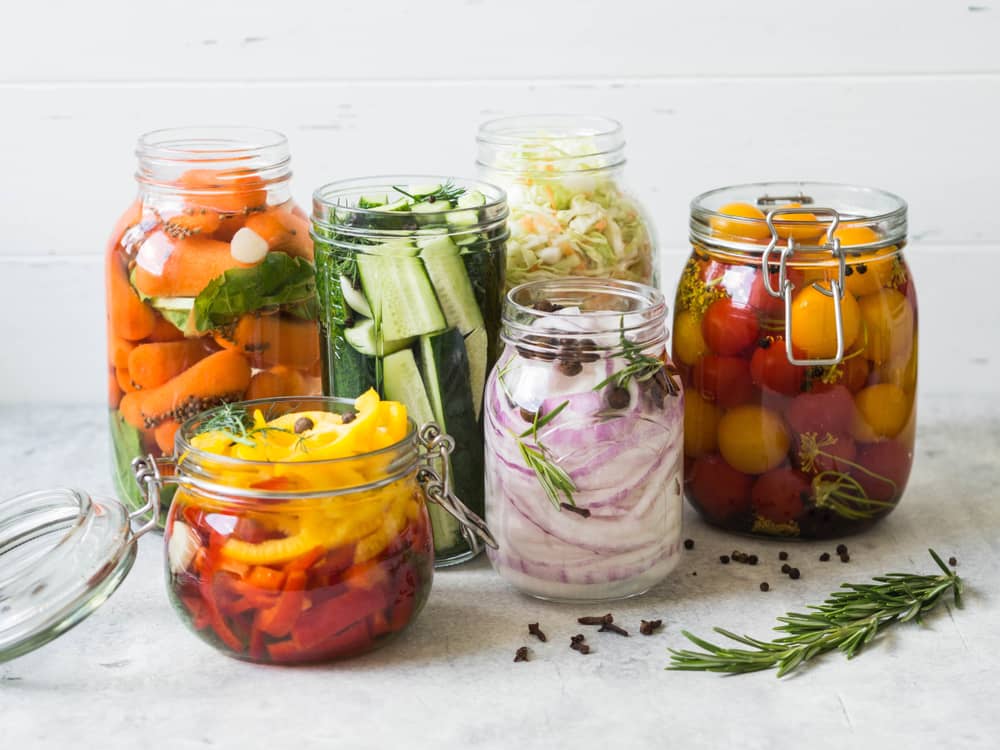
Fermented Dog Food – What Is It?
Fermentation is a natural process of preserving food. Microorganisms like bacteria and yeast convert carbohydrates such as sugar and starch, into acid or alcohol, which are natural preservatives. The whole process promotes good bacterial growth known as probiotics.
Common fermented foods people are fond of consuming are beer, cheese, kimchi, sauerkraut, sourdough bread, and wine.
When it comes to pets, some good options of fermented foods for dogs include:
- Buttermilk
- Kefir
- Sauerkraut
- Yogurt
- Fermented veggies for dogs like beets, carrots, cabbage, kale, and many more
Fermented foods can be a great addition to your dog’s diet. But there are some pros and cons you should know about feeding your dog fermented veggies.
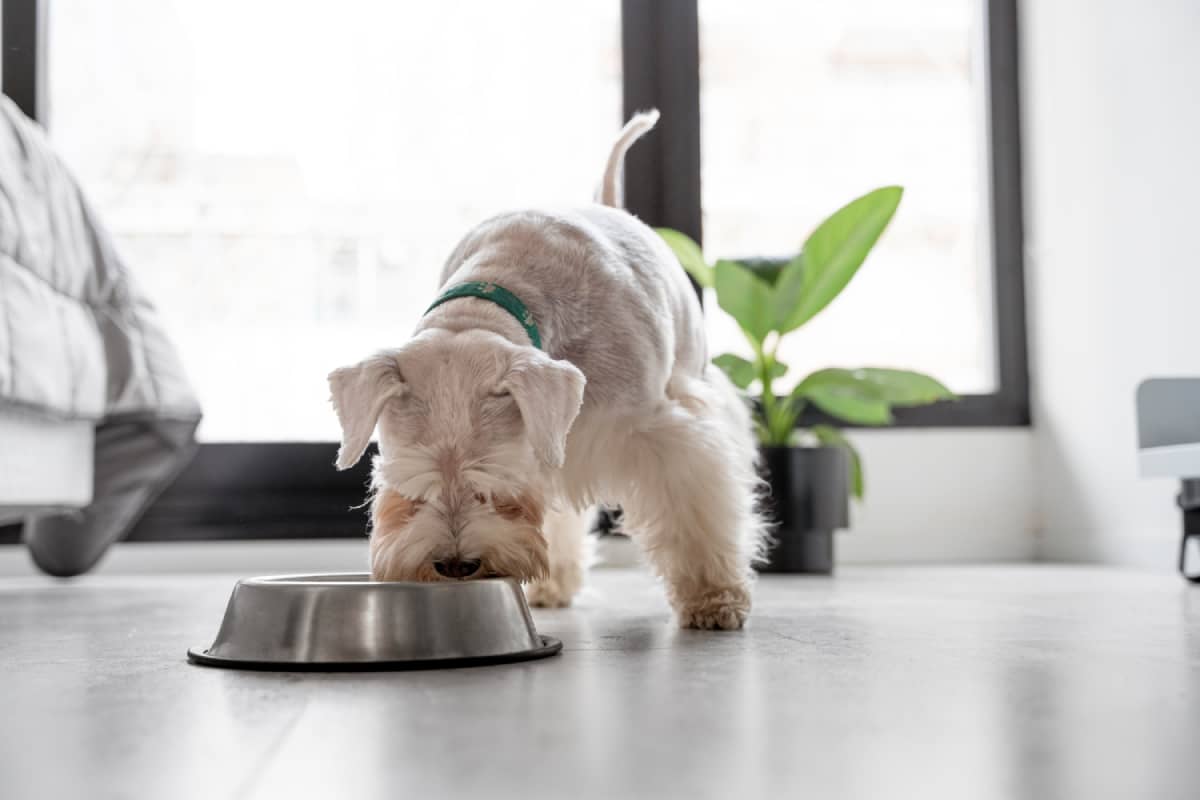
Benefits of Fermented Foods for Dogs
Is fermented food good for dogs? Generally, yes. Check out the advantages of feeding your dog fermented foods.
- Easy to Digest
The food becomes easier for your dogs to digest because of the process it has undergone during fermentation. Fermented vegetables, for example, will have bacteria and yeasts pre-digesting the sugar in the produce. Carbohydrates are harder to digest, especially among dogs. - Supplements Your Dog’s Diet
The same bacteria and yeasts that broke down carbohydrates in fermented vegetables also produce vitamins and enzymes, which add wonders to your dog’s diet. You can also provide a variety of nutrients to your dog when you feed them different fermented vegetables every day. - Fermented Veggies for Dogs Last a Long Time
You can keep your fermented vegetables in the refrigerator for a long time. Prevent food boredom in dogs by fermenting a wide variety of vegetables so you can feed your dog a different vegetable every day. - Healthy Way of Promoting Healthy Bacteria
Adding fermented food to your dog’s diet is a way of introducing good bacteria into your pet’s gut. The healthy bacteria will take over the harmful ones present in your dog’s internal organs. Bad bacteria may cause diseases, infections, and parasites. - Increases Natural Melatonin in Dogs
According to research, melatonin has been detected in fermented food products. It is a hormone that regulates your dog’s sleep-wake cycle. It also has a calming effect, which makes melatonin ideal for dogs suffering from anxiety.

What are the Dangers of Fermented Foods?
Fermented foods are great for dogs with healthy guts. However, they can have some ill effects on dogs suffering from diarrhea, constipation, abdominal pain, and other digestive issues.
The probiotics found in fermented food for your dogs will feed on the yeast present in your dog’s problematic intestines, making the digestive issue worse.
Probiotics are very sensitive to temperature, air, and moisture. Live probiotics are usually better and should be kept in the fridge, so make sure to read the labels.
In a situation where you have fed your dog some fermented food without realizing they already have a digestive issue, you need to get the food out of your dog’s system.
To do this, you need to use some simple tricks to make your dog throw up.
Histamine intolerance is another issue that may bother your dog after eating fermented foods. There is ample presence of histamine in fermented foods. The dog needs specific enzymes to absorb the histamine. If that fails, then your dog will most likely have an allergic reaction like skin rashes or difficulty in breathing.
It should be emphasized that fermented foods are generally great for dogs, as long as they are at their peak of health. If they are suffering from digestive issues or other ailments, stop the fermented food diet right away.
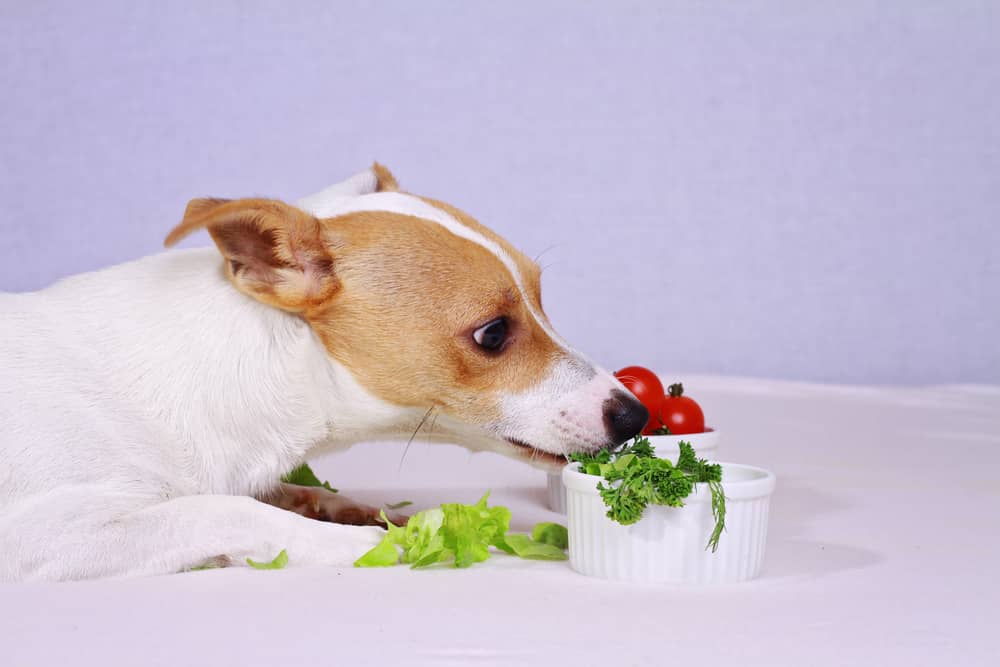
DIY Fermented Foods for Your Dogs
A commonly asked question is, can dogs eat fermented foods that are made at home?
Buying fermented foods at the frozen section of your pet store is mighty convenient, but nothing beats making your own food at home. The advantage being that you know everything that goes into the food as you are preparing the ingredients and mixing them yourself. Homemade beats store bought any day of the week!
Here are some healthy and delicious fermented foods that can be made easily at home.
Cultured Cabbage Juice
You only need two ingredients for this: Chopped cabbage and water. Make sure the cabbage is fresh and the water is distilled. Blend the two ingredients in your blender and put it in a bowl with a cover. Make as much as you like. When you’re done blending the ideal amount of mixture, cover the bowl and leave it at room temperature for three days.
After three days, strain the mixture so you are only left with the cabbage juice. Mix a spoonful of cabbage juice with equal amounts of water to feed your dog. The juice is loaded with lactobacillus or good bacteria that can kill parasites, fungi, and pathogens. Also Read – How To Care for Your New Puppy
Simple Mixed Veggies
For this recipe, you can use different vegetables which are readily available to you. We have listed some popular options below:
- Beet greens
- Cabbage
- Dandelion root
- Kale
- Parsley
- Swiss chard
- Filtered water
- Salt
Shred your vegetables and mix them in a bowl. In a separate container, make the brine by mixing a gallon of water and about 75 grams of salt. Mix both.
Now, put your vegetables in a jar or jars if you plan to make a larger batch. Get a whole leaf of cabbage and cover your salad mixture with it. Pour the brine mixture onto the veggie mixture and then seal it shut. Leave the jar or jars at room temperature for three to four weeks.
It’s important that fermented veggies are fed gradually to your dog. Don’t give it an entire cup of fermented vegetables at once. Start with a spoonful of mixture per day, gradually increasing the quantity every day.
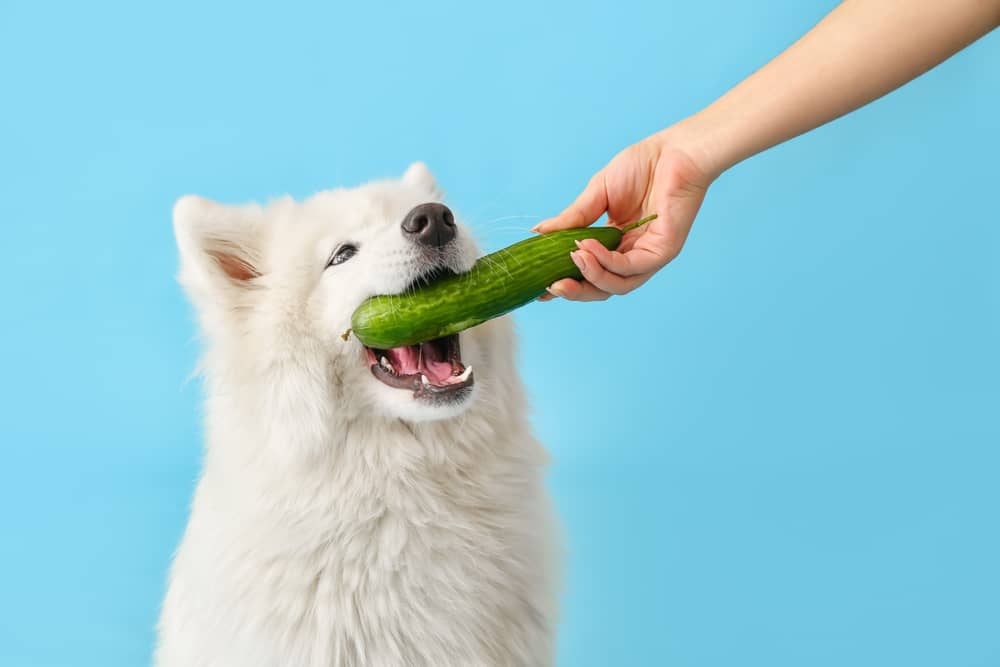
Is Fermented Food Ok for Dogs?
Most fermented foods are generally beneficial for healthy dogs, but it’s still best to proceed with caution. The best way to feed your dog with fermented food is to start with a small portion until you’ve monitored that your dog is ready to have a larger portion.
Fermented foods provide a boost of nutrients and melatonin to your dog while also promoting a good and healthy gut. So yes, when asked, can dogs eat fermented foods? The answer is yes, but only when your dog is healthy.



